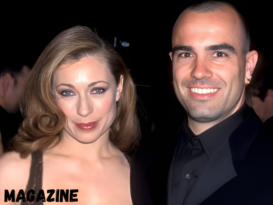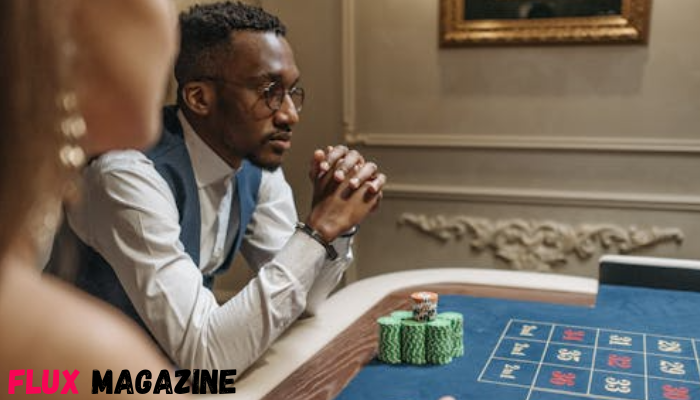Poker is much more than a test of luck. At its core, it’s a practical lesson in reading people, weighing risk, and making decisions under pressure. Every hand dealt requires players to think several moves ahead, gauge the odds, and adapt quickly to new information. These are skills that reach far beyond the card table.
Whether you’re navigating a tough negotiation at work or making a big personal decision, the strategies sharpened in poker can guide your approach. A poker mindset helps you handle uncertainty, manage emotions, and act with clear intent when the stakes feel high.
PokerioMokykla: Where decision-making gets sharper
At first glance, poker looks like a contest of luck and bravado. Step into PokerioMokykla, though, and you quickly realize it’s a training ground for true strategic thinking.
Here, players don’t just memorize odds or rehearse basic moves. They’re coached to look several steps ahead, weighing the risks and rewards of every decision under real pressure.
One thing that stands out in my experience is how quickly students develop an ability to pause, read the room, and adjust on the fly. That habit doesn’t stay at the card table, it spills over into day-to-day choices at work and beyond.
The curriculum at PokerioMokykla goes far beyond shuffling chips. It sharpens both intuition and analytical skills through drills that simulate complex scenarios, think negotiating a salary or deciding when to invest in a new project.
This kind of mental training builds confidence for life’s big decisions, whether you’re leading a team meeting or planning your next move in business. The result is an approach where people trust their process, manage risk thoughtfully, and see opportunity where others see uncertainty.
The psychology of risk: lessons from the poker table
Poker is one of the few games that demands you get comfortable with risk, fast.
What sets strong players apart isn’t just their math skills, but their ability to make decisions without all the answers and keep emotions in check.
At the table, every bet means weighing potential reward against real possibility of loss, often with limited information.
Seasoned players don’t chase every hand or panic when luck turns. They learn to take a long view, focusing on overall strategy instead of short-term swings.
This mindset, accepting uncertainty and thinking in probabilities, can dramatically shift how we approach choices in business, finance, and even relationships.
Calculating odds in everyday life
If you’ve played poker, you know it’s more than hoping for a lucky card, it’s about doing quick math under pressure.
In daily life, this habit of calculating odds shows up everywhere: deciding whether to switch jobs, invest savings, or even negotiate for a raise.
Instead of going with gut feelings alone, poker-trained minds break decisions down. What are the possible outcomes? What’s the likelihood each happens? What’s at stake if things don’t go as planned?
I’ve found that borrowing this approach makes even big personal choices less daunting. Suddenly, moving cities or starting a business feels less like a leap and more like a series of calculated steps.
This way of thinking keeps emotion from hijacking logic, and that’s an edge anyone can use beyond the felt.
Avoiding tilt: emotional control in high-stakes moments
Poker has its own word for losing your cool: “tilt.” It’s what happens when frustration takes over after a tough loss and starts driving your next moves for you.
I’ve seen great players throw away hours of solid strategy because they let one bad beat shake them. The best learn to pause, breathe, and reset, even if it means folding another hand while they regain focus.
This kind of emotional discipline translates perfectly to real-world pressure. Whether you’re facing a stressful meeting or an unexpected setback at work, learning to spot your own tilt (and stop it) is priceless.
- Take a moment before responding when stakes feel high
- Reframe setbacks as single events, not trends
- Remind yourself of your bigger objectives, not just today’s outcome
The goal isn’t to never feel frustration; it’s recognizing it quickly enough to keep decision-making sharp and rational.
Research insights on risk perception
Modern psychology shows our brains aren’t always wired for perfect risk-taking, we’re constantly juggling gut instincts with logic when faced with big decisions.
A Risk Perception in Gaming review from 2024 highlights that players’ sense of risk is shaped by both emotion and rational analysis. In other words, we’re not robots, but neither are we entirely at luck’s mercy.
This is exactly what good poker teaches: trust your read on people and situations but back it up with calculation. By becoming aware of common biases, like overvaluing short-term wins or letting fear trump facts, we can start making better choices everywhere from investment decisions to family debates.
The upshot? Poker isn’t just entertainment; it rewires how you size up uncertainty so you can take smarter risks across every part of life.
Strategic thinking beyond the cards
Poker is much more than a battle of hands. It’s a mental arena where strategy, timing, and adaptability are constantly put to the test.
The skills honed at the card table, reading people, adjusting to new information, and knowing when to make your move, translate seamlessly into high-stakes business meetings or tough negotiations.
I’ve found that those who approach challenges like seasoned poker players tend to spot opportunities others miss. They’re comfortable with ambiguity, quick to adjust, and willing to play the long game instead of chasing immediate wins.
Whether you’re managing a team or negotiating a deal, strategic thinking rooted in poker can give you an edge in even the most competitive environments.
Reading people: The art of informed guesswork
Great poker players don’t just rely on cards, they watch every gesture, word, and hesitation at the table. Over time, they become masters at reading subtle signals and predicting what their opponents might do next.
This same skill is gold in office politics or social situations. Picking up on tone shifts during a meeting or noticing when someone avoids eye contact can help you understand hidden agendas or team dynamics long before they become obvious.
In my experience, asking open-ended questions and watching for reactions often reveals far more than direct answers ever could. You start spotting who’s bluffing and who’s genuinely invested in a plan or project.
The better you get at interpreting these clues, without overthinking them, the easier it becomes to navigate complex group dynamics and make smarter calls in high-pressure moments.
Adapting your strategy on the fly
No two poker hands play out the same way, and neither do business deals or personal negotiations. The best card players learn early that rigid plans rarely survive contact with reality.
This mindset pays off outside the casino as well. When new information lands on your desk, a surprise competitor enters the market or a key client changes priorities, being able to pivot quickly makes all the difference.
I’ve seen leaders pause mid-conversation, rethink their position based on something unexpected, then steer things toward a better outcome. This flexibility isn’t about guessing wildly; it’s about keeping options open while reassessing risk as facts change.
If you treat each challenge like a hand of poker, staying alert for shifting dynamics, you’re much less likely to get caught off guard by rapid change.
Case study: Poker-inspired leadership
You don’t have to be a professional card player to lead with poker smarts. In fact, many executives quietly credit their time at the tables for sharpening their approach to high-stakes decisions and complex teams.
Poker Skills for Leadership, a 2024 Forbes article, highlights how top leaders use lessons from poker, like reading subtle signals in meetings, taking calculated risks, and staying nimble under pressure, to outpace competitors. They focus on managing uncertainty rather than eliminating it completely.
One thing that stood out from this research was how quickly these leaders bounce back after setbacks. Just like skilled players who fold a bad hand without dwelling on it, resilient managers let go of mistakes fast so they can refocus on what matters next.
This blend of calculated risk-taking and adaptability gives them an unmistakable edge, at work and beyond.
Embracing uncertainty: building resilience and confidence
Poker is a constant lesson in handling the unknown. Every hand is filled with incomplete information, shifting odds, and unexpected outcomes.
What separates strong players from the rest isn’t luck, it’s how they respond to these uncertainties. Instead of fearing the unknown, skilled players treat it as part of the process. They learn to trust their preparation and adapt quickly when plans go sideways.
By embracing uncertainty, analyzing mistakes, and focusing on long-term growth instead of short-term setbacks, poker players build real resilience. These same skills translate directly into business or life: if you can stay calm under pressure at the card table, you’re better prepared for tough choices anywhere else.
Learning from losses: turning setbacks into strengths
If you play enough poker, losses are inevitable. The key isn’t avoiding failure, it’s what you do next.
The best players use every setback as a chance to improve. They review each hand with a critical eye, looking for gaps in their thinking or missed opportunities.
This willingness to learn transforms disappointment into fuel for future success. In my own experience, I’ve seen that analyzing losses, not just celebrating wins, builds sharper instincts over time.
Adopting a growth mindset pays off beyond poker, too. In business or personal life, treating mistakes as learning moments helps you bounce back faster and make smarter decisions in the future.
Trusting your gut: the role of intuition
Sometimes there’s no clear answer at the poker table, you have to make a call based on feel as much as fact.
Intuition plays a huge role in high-level decision-making. What looks like instinct is often deep pattern recognition built from years of hands played and analyzed.
The challenge is knowing when to trust your gut versus relying on pure data. In my experience, combining both approaches leads to stronger choices than relying on either alone.
The same holds true outside poker. Balancing analysis with intuition lets you move confidently when facing unfamiliar situations or high-stakes decisions where not everything can be calculated in advance.
The science of resilience in decision-making
Recent research offers insight into why some people thrive amid setbacks while others get stuck after failure.
A 2023 academic paper (Building Resilience and Adaptability) found that building resilience isn’t just about grit, it’s about creating an environment where continuous learning and flexibility are encouraged.
The study highlights that psychological safety, knowing it’s okay to make mistakes, helps people recover faster from losses and adapt their strategies more effectively under stress.
This approach mirrors what successful poker players do: they treat every session as a chance to learn, adapt quickly when conditions change, and maintain confidence even after tough beats. It’s a powerful formula for bouncing back stronger, at the card table or anywhere big decisions are made.
Turning poker skills into everyday advantages
Poker sharpens the way we make choices, whether we’re deciding on a career move or resolving a personal issue. The lessons from the card table, balancing risk, reading people, and trusting your instincts, equip you to approach life’s uncertainties with steady confidence.
Adopting this mindset means every challenge becomes an opportunity to think strategically and act decisively. If you start viewing decisions like a seasoned poker player, you’ll find yourself shaping stronger outcomes wherever you play your cards next.


















Show Comments (0)